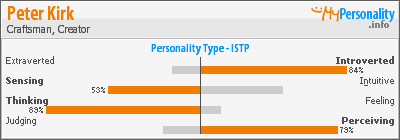It is only a couple of months since I took the VARK learning styles questionnaire. Now I have taken another questionnaire on learning styles, from learning-styles-online.com, which was recommended by Sally. This new one differs from that VARK one in offering seven different styles rather than four, and in its claim
This is the web’s only free learning styles test with a graphical result page!
Indeed, VARK did not offer graphical results, but www.learning-styles-online.com does, and here are mine:
Your results
These are the results of your inventory. The scores are out of 20 for each style. A score of 20 indicates you use that style often.
Style Scores
|
Memletic Learning Styles Graph: |
Again I score low on aural, and relatively high on visual and physical/kinesthetic. My verbal or read/write score comes out significantly higher this time. But my highest scores are for categories not in VARK: logical and solitary. I don’t know why there is such a difference except that perhaps I answer these things inconsistently!





